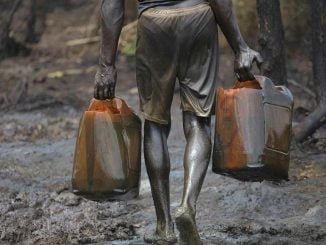
Kampala, Uganda | By Michael Wandati | Uganda’s presidency confirmed on Friday 5, April 2024 that China has extended an invitation to Uganda’s Energy minister to visit Beijing for discussions on the country’s $5 billion crude oil pipeline project.
This development offers hope for progress in Uganda’s efforts to secure Chinese financing for the pipeline, crucial for kickstarting crude production from oilfields discovered back in 2006.
The potential involvement of Chinese funding gains significance as Western banks have refrained from financing the project following pressure from environmentalists, citing concerns over its impact on global carbon emissions.
Xue Bing, China’s Special Envoy for Horn of Africa Affairs, delivered a message to President Yoweri Museveni on Thursday 4, April 2024. In the message, Chinese President Xi Jinping expressed his support for the 1,445-km (898-mile) pipeline, as reported by Museveni’s office.
“Chinese financial institutions are open to discussions on the project and extended an invitation to Hon. Ruth Nankabirwa, the Minister of Energy and Mineral Development, to visit China for further discussions,” Museveni’s office said.

The East African Crude Oil Pipeline (EACOP) is set to stretch from the oilfields located in Uganda’s western region, traversing the landlocked country, to reach its final destination at Tanga port on the coast of Tanzania along the Indian Ocean.
Also Read: Plan for Uganda’s oil now or never: Katikkiro warns
“I am in full support of EACOP. I believe that it will enhance socio-economic development for the region,” Museveni’s office quoted Xi as saying in his letter.

Prior discussions between Uganda and the Chinese export credit agency SINOSURE regarding potential funding for the project had been ongoing. However, several deadlines for concluding these talks had passed without reaching a resolution.
Meanwhile, construction activities for the pipeline have commenced, involving the transportation of pipes and other materials to designated sites in both Tanzania and Uganda. Notably, the pipeline will be equipped with electrical heating systems to ensure continuous oil flow.
Additionally, a thermal insulation plant, essential for insulating the pipes before installation, commenced operations in late March, marking progress in the preparatory phases of the crude oil pipeline project.



